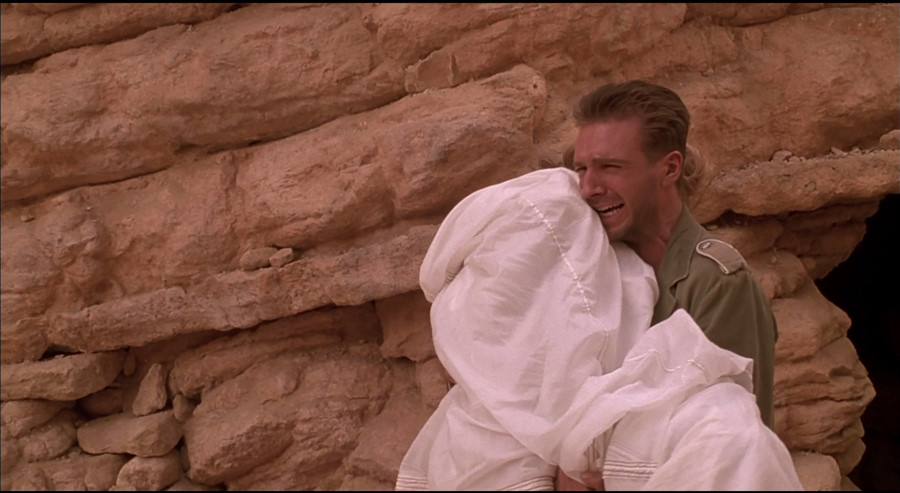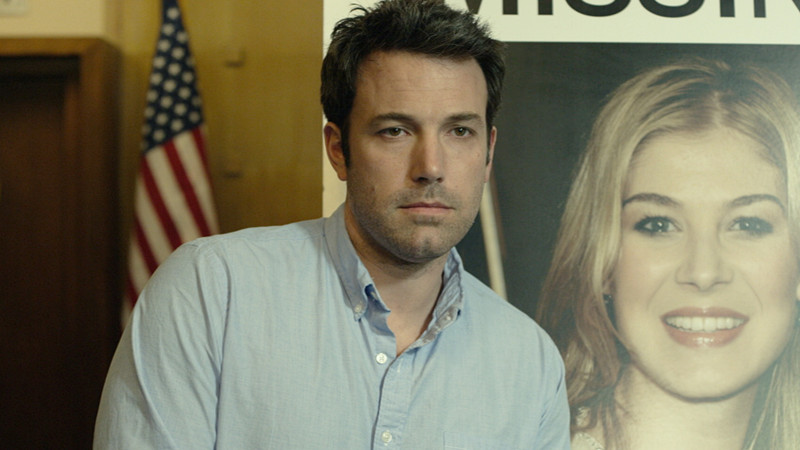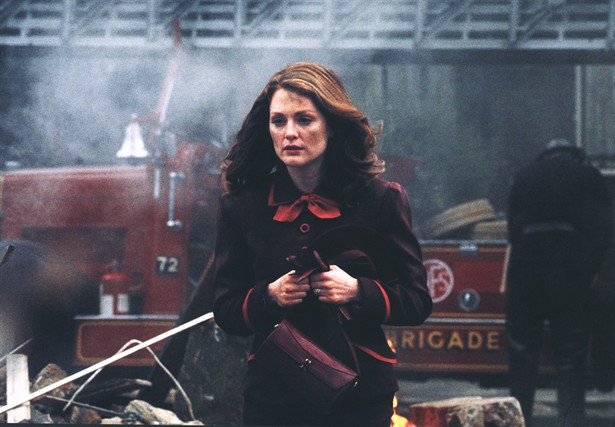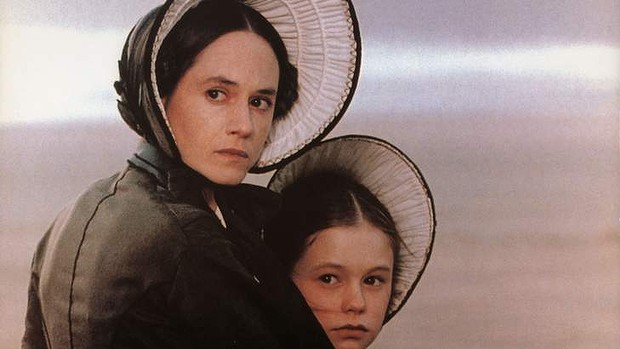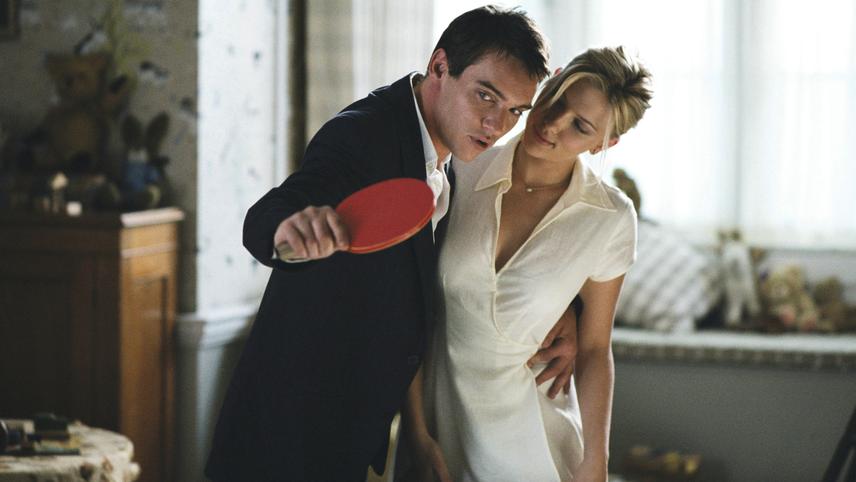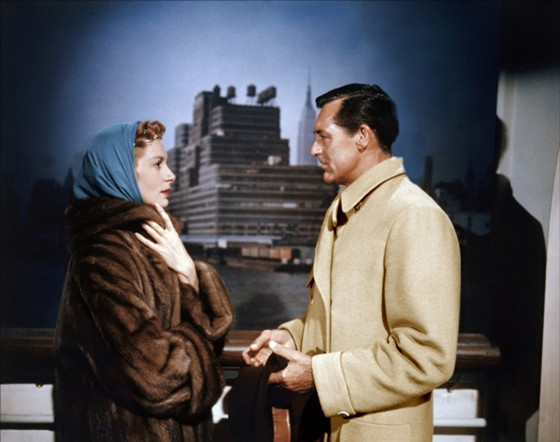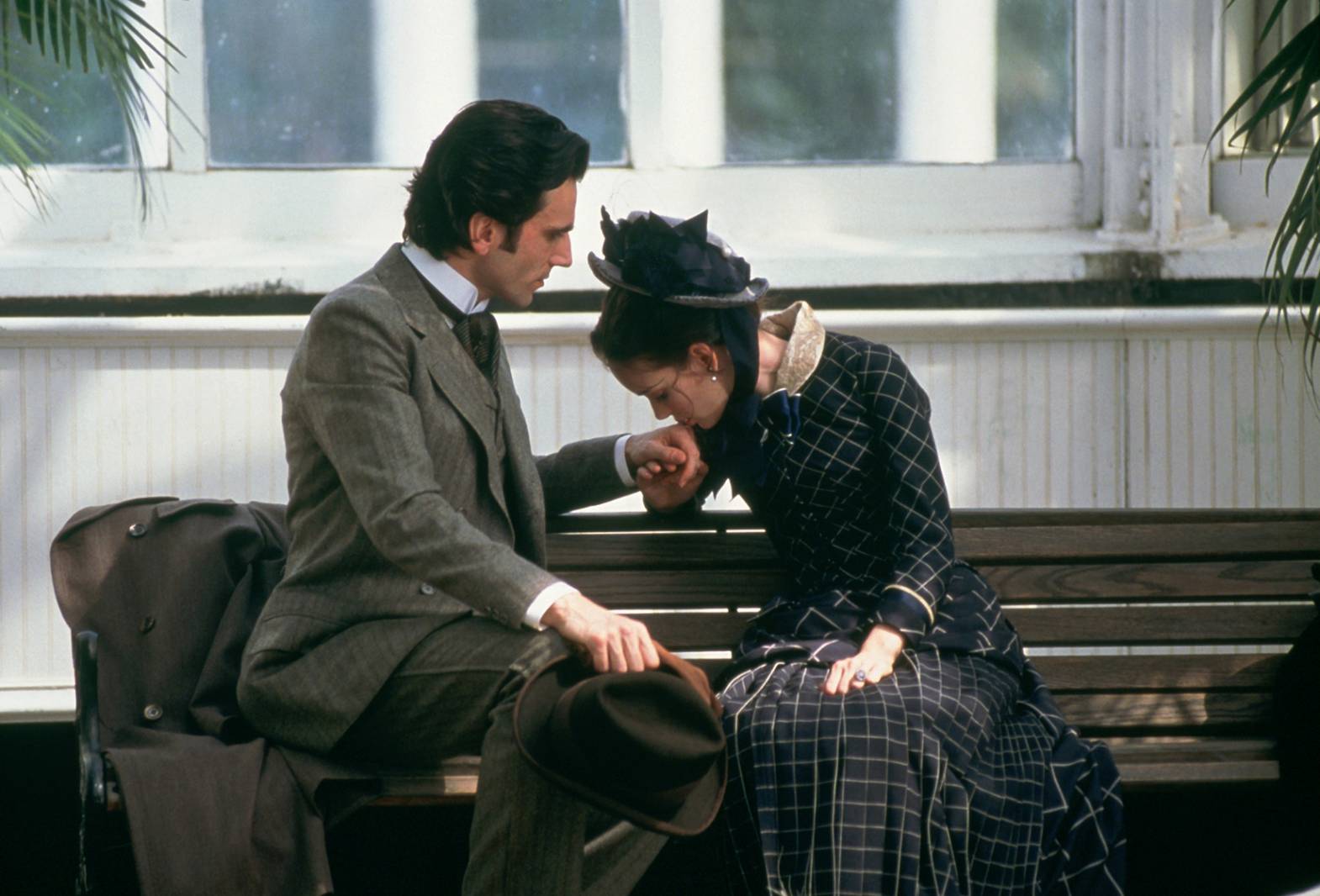14. The English Patient (1996)
Anthony Minghella’s British-American romantic drama based on the novel of the same name by Michael Ondaatje takes place during the final days of the Italian Campaign of World War II and follows Hana (Juliette Binoche), a nurse and a critically burned man who cannot remember his name (Ralph Fiennes).
With the help of Kip (Naveen Andrews) and trained interrogator David Caravaggio (Willem Dafoe), he gradually reveals his past and even remembers his name, Count László de Almásy.
It flashbacks to when he was mapping the Sahara as part of a Royal Geographical Society archaeological and surveying expedition with others including a British couple, Geoffrey (Colin Firth) and Katherine Clifton (Kristin Scott Thomas). Almásy and Katherine become close but as their life together begins, it is quickly disrupted by hidden truths and angry consequences.
This poetic film is the kind of movie that you need to watch twice to fully appreciate the layers of mystery hidden behind the puzzle of the past, present and future. The harsh isolation of the desert is balanced with the momentary relief of romance between the two leads, hoping that they can survive past the sandstorms, the heat and the pressure not to be caught.
The palpable chemistry between Fiennes and Scott Thomas and Juliette Binoche’s hypnotic portrayal draws one into drama. The film received 12 nominations at the 69th Academy Awards, eventually winning nine, including Best Picture, Best Director (Minghella), Best Supporting Actress (Juliette Binoche), Best Cinematography, Best Original Score and more. Ralph Fiennes, Kristen Scott Thomas and Minghella (for Best Adapted Screenplay) were also nominated for Oscars, BAFTAs and Golden Globes.
15. Gone Girl (2014)
David Fincher’s psychological thriller written by Gillian Flynn based on her 2012 novel of the same name follows the events surrounding Nick Dunne (Ben Affleck), who becomes the primary suspect in the sudden disappearance and possible murder of his wife, Amy (Rosamund Pike).
At first, “Gone Girl” seems to tell the story of a man who might or might not have killed his wife, and is so closed off and alienating that even his sister (Carrie Coon) wonders about his innocence. Amy and Nick seemed like a happy couple but as the film progresses and clues are found regarding her sudden disappearance, scraps from Amy’s diary and flashbacks show how their marriage had disintegrated and how Nick had changed.
Domestic disputes, financial troubles, boredom are all possible motives for why Nick could kill Amy, but none more obvious than his affair with his much younger student (Emily Ratajkowski), which comes to light to the public during a press conference, and doesn’t help Nick’s case. The plot takes us through many twists and turns and maintains momentum throughout.
A nightmare of bitter love and an elaborate revenge fantasy that exploits the media, the gliding widescreen camerawork and desaturated colours fuse with the continuous downfall of Nick and everybody’s goal to see him get the chair for killing “Amazing Amy”.
“Gone Girl” garnered many awards and nominations, specifically for its direction, Pike’s lead acting performance, Flynn’s screenplay, and its score. At the 87th Academy Awards, Pike received a nomination for Best Actress. The film received four Golden Globe nominations including Best Director for Fincher, Best Actress in a Drama for Pike, Best Screenplay for Flynn, and Best Original Score.
16. The End Of The Affair (1999)
Neil Jordan’s drama based on the 1951 novel by Graham Greene, which had also been adapted as a film in 1955 with Deborah Kerr, follows novelist Maurice Bendrix (Ralph Fiennes) and his obsession with his former mistress Sarah (Julianne Moore) during the 1940s.
Fiennes narrates the film as he writes his book, beginning it with the line “This is a diary of hate.” He recounts how he accidently met his old friend Miles (Stephen Rea), husband of his former mistress Sarah, who abruptly ended their affair two years before. Miles states that he is suspicious of his wife and Maurice becomes equally as jealous and seeks to find out the truth with the help of a private investigator (Ian Hart).
The 1946 storyline is punctuated by flashbacks of when Bendrix with Sarah began their affair during World War II which show how Bendrix became severely jealous of Henry and constantly asked Sarah to leave him, which she never did.
The cold, dark, and wartime setting of London provides the perfect backdrop of greyness and glumness that matches all the characters’ despair, betrayal and hopelessness that is only relieved during the warm interiors when they’re having sex.
17. The Piano (1993)
Set during the mid-19th century in the west coast of New Zealand, Jane Campion’s drama follows a mute piano player Ada McGrath (Holly Hunt) who is sold by her father into marriage to a New Zealand frontiersman, Alisdair Stewart (Sam Neill), bringing her young daughter Flora (Anna Paquin) and her handcrafted piano. Alisdair tells Ada that there is no room in his house for the piano and abandons it, leaving Ada distant and determined to play again.
She seeks help from Alisdair’s friend and fellow forester George Baines (Harvey Keitel) who she communicated with through her daughter translating sign language since he is unable to read. Baines admires her talent and offers Alisdair to trade the instrument and lessons from Ada for some land, which he agrees to. While Ada and her husband Alisdair have had no sexual interaction, the lessons with Baines become a slow seduction for her affection.
Jane Campion translates the power that Ada gains by pretending to care nothing for Baines, as their relationship becomes focused on restraint and patience, making the film all the more subtle and surprising. The cinematography’s cold greys and browns reflect the desolate coast, and only become warm when Ada is emotional. The film focuses on interpreting the feelings the characters have more than simple character development or plot movement.
The film won the Palme d’Or at the Cannes Film Festival. And won 3 Academy Awards out of 8 total nominations: Best Actress for Hunter, Best Supporting Actress for Paquin, and Best Original Screenplay for Campion. Paquin, who at the time was 11 years old, is the second youngest Oscar winner ever in a competitive category.
18. Match Point (2005)
Woody Allen’s comedy-drama follows Chris Wilton (Jonathon Rhys Meyers), a tennis instructor at an upmarket club in London, who knows how much luck can influence peoples’ lives. Through the club, he befriends the wealthy Tom Hewett (Matthew Goode), and becomes part of his family after meeting, dating and marrying his older sister Chloe (Emily Mortimer). He is also introduced to Tom’s American fiancée, Nola Rice (Scarlett Johansson) who he is immediately attracted to.
His life becomes luxurious, easy and comfortable with a new job, new mansion, and a driver to take him to the opera, the club and whatever art gallery Chloe wants him to go to. But he quickly becomes bored with his life and begins an affair with Nola after Tom breaks up with her. The claustrophobic comedy turned thriller becomes tenser and tenser as Chris tries to satisfy both his greed and his lust, without losing both.
Definitely not a typical Woody Allen film, it’s set in London (and not his New York City), has no psychoanalysts where the characters expose their feelings and has no overly anxious, cynical Woody Allen figure.
Instead he focuses on making the audience not identify with the hero, but rather a morally bankrupt person who has luck on his side as he moves through a tricky clockwork plot which is taken more seriously than his normal walk and talk plots. Allen was also nominated for an Academy Award for Best Original Screenplay.
19. An Affair To Remember (1957)
Aboard the Transatlantic ocean liner SS Constitution en route from Europe to New York, playboy Nickie Ferrante (Cary Grant) and Terry McKay (Deborah Kerr) become friends with each other after a series of coincidental meetings.
Both are involved with someone else, yet their bond becomes more intimate and they promise to reunite at the top of the Empire State Building in six months’ time, if they have succeeded in ending their relationships. Skip six months to the day of the Rendezvous where Terry is hit by a car in her hurry to get to the building and is rushed off to hospital, leaving Nickie to assume that he has been rejected.
The film was a remake of McCarey’s 1939 film Love Affair, starring Irene Dunne and Charles Boyer and is almost identical to Love Affair on a scene-to-scene basis since McCarey used the same screenplay as the original film. According to the American Film Institute, “An Affair To Remember” is considered one of the most romantic movies of all time, inspiring many later romantic comedies like “Sleepless In Seattle”.
20. The Age Of Innocence (1993)
Martin Scorsese’s period adaptation of Edith Wharton’s 1920 novel of the same name, follows Newland Archer (Daniel Day Lewis) as he is planning to marry the respectable May Welland (Winona Ryder). May’s cousin, the Countess Ellen Olenska (Michelle Pfeiffer) has returned to New York after leaving her husband, which causes a scandal and a lot of gossip in high society circles.
Archer soon becomes closer to the Countess and comes to admire her striking, progressive and unusual perspective on the Gilded Age. He simultaneously becomes more discouraged about marrying May; especially when compared to the Countess, whose contrast brings out May’s indifference and innocence.
High society’s dominating opinion rules over everything and everyone throughout the film and is reflected through the countless possessions everybody needlessly has. Michael Ballhaus, the cinematographer, effortlessly pulls the audience into the frame as if they are voyeurs in awe of the fortune but ready to analyse as the camera moves so slowly that it is barely noticeable.
The film won the Academy Award for Best Costume Design, and was nominated for Academy Awards for Best Actress in a Supporting Role (Winona Ryder), Best Adapted Screenplay, Best Original Score and Best Art Direction.
Author Bio: Susannah Farrugia is an undergraduate Psychology student at the University Of Malta. Her life is measured in films and television shows. She enjoys drawing scenes and designing posters based on the films she has seen.
